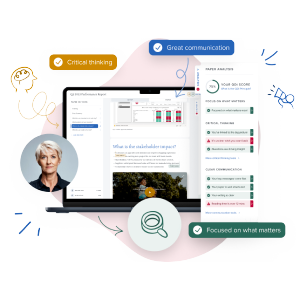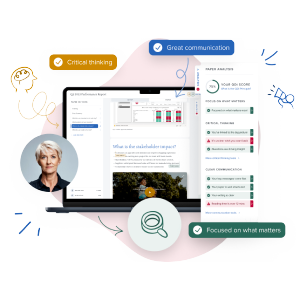The former head of the Wall Street Journal Europe and editor of The Sunday Telegraph, Baroness Patience Wheatcroft is a journalist, non-executive director, and member of the House of Lords. She has served on the boards of Fiat Chrysler Automobiles, Barclays, and St James’s Place.
Here, Patience reflects on chairing a Think Tank roundtable and lays down a challenge to her peers.
My challenge to business leaders
The pandemic revealed the extent of all kinds of unfairness in the UK, but for me one of the worst problems it has shone a light on is working poverty. The simple truth is that far too many people who are in work earn barely enough to survive.
So, my challenge to board members everywhere is simply to ask themselves this: do the least well-paid of your employees earn enough to live on without recourse to state handouts? Because there is something fundamentally unfair about a business where the top team is paid very nicely thank you, employing workers who are paid so little that they depend on Universal Credit — effectively a taxpayer subsidy — to make ends meet.
“The simple truth is that far too many people who are in work earn barely enough to survive.”
To build the fairer future that we all want, we must start thinking about how to share the cake a bit more equally. Yet, in my experience, these kinds of conversations simply don’t happen on most boards. Partly, perhaps, because they touch on the taboo subject of executive pay — and once you start asking whether those at the bottom of the ladder are not paid enough, the question that inevitably follows is whether those at the top are also paid too much. Turkeys don’t vote for Christmas.
But it is also a consequence of the fact that it’s easy for even the most well-intentioned business leaders to live in a bit of a bubble. Busy people with well-paid jobs tend to mix with others who are just like them. Social inequality and unfairness look like problems for other people, they do not feature regularly in their own lives.
Given all that, it’s not much of a surprise that unfair pay distribution has proved such an intractable problem. Could we do something about it, if we really wanted to?
I think the answer is yes. For a start, there is no need for anyone to live in a bubble — we can all find ways to see more of the world beyond the boardroom. One of the panellists on the roundtable I chaired, Jane Hanson, is not only chair of the Reclaim Fund and a NED for the CAA and Welsh Water, but also a magistrate. That’s a job that makes a big social contribution, and also brings you into contact with a wide cross-section of society — an experience that helps keep boardroom conversations about fairness grounded in reality.
“These kinds of conversations simply don’t happen on most boards.”
But fairness — especially around pay — is also a structural issue. We all know how shareholder pressure on returns can end up pushing all other considerations aside. I think there is a lot to be said for businesses being employee-owned, at least to some extent. The full-fat John Lewis model isn’t for everyone, but even partial ownership gives employees a much greater stake in the business and a real say in how things are done and in what people at the top and the bottom are paid.
One final idea that emerged from the panel certainly made me think about pay inequality in a new way: instead of trying to cap executive pay, or use blunt instruments like earnings multiples to keep a lid on the gap, why not use pay to actively promote fairness — by linking remuneration to social outcomes and KPIs, rather than purely to financial ones?
Directors who couldn’t answer “Yes” to the question I posed at the top of this article — and prove it — might ultimately face a pay cut themselves, at least until they sorted the problem out. That would be a powerful mechanism to put to work in the cause of fairness.
“Why not use pay to actively promote fairness — by linking remuneration to social outcomes and KPIs, rather than purely to financial ones?”
Don’t worry, it’s more of a thought experiment than a serious proposal. But you can’t have a fairer future without fairer pay, and until we can start having real conversations about that in the boardroom, the iniquity of working poverty will remain.
What we learnt by adding a seat to the table
Every Board Intelligence Think Tank roundtable features an unexpected guest, invited to bring a different viewpoint to the conversation. On this occasion, we heard from Lizzie Beale, a youth ambassador.
Lizzie is absolutely right that businesses need to be more involved in their local communities. Too many leaders simply don’t realise the extent to which business — especially big business — just isn’t trusted by the public anymore.
In the past, great companies like Unilever and Cadbury earned the trust of their communities by being right at the heart of the towns and cities where they were based. But during the pandemic it became apparent that many senior executives didn’t even understand the domestic challenges facing their own junior staff, struggling to work at home because they just didn’t have the space, never mind the social issues in their wider communities.
I am not saying we should return to the days where people were entirely dependent on their employers. But being an active and positive member of the community is part of any organisation’s licence to operate, as well as being good commercial sense — because, in the long term, healthy communities sustain healthy businesses, and vice versa.
Click here to read the full report on our roundtable findings.




